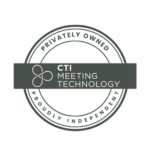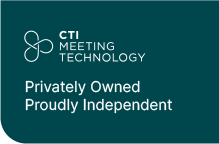Why It Is Important to Choose the Right Abstract Management System?
Every great meeting has a lot of moving parts. It needs compelling, even provocative plenary speakers. It needs an appealing venue, even if the venue is virtual. It needs opportunities to network. But the heart of your meeting is always content—the abstracts and presentations that deliver cutting-edge knowledge and make attendees grateful for the rest of the meeting experience.
Too often, though, meeting planners are too overwhelmed with the logistical details of an event to give content—abstract management—the attention it deserves. That’s a shame, because choosing the right vendor can make your meeting more efficient and build goodwill with submitters and reviewers who’ve long been frustrated with clunky, unintuitive submission and reviewing tools.
As you take the time to shop around, here are seven questions you should ask of any program-management vendor.
1. How Much of The Planning Process is The System Ready to Handle?
Submitting abstracts is just the start of the event programming process. Can the abstract management system you are looking at handle and track reviewing? Does it allow you to create a workable schedule for your conference—and make sure presenters are kept in the loop about any changes? Is it equipped for virtual and hybrid conferences along with in-person ones? The most powerful abstract and program management systems support as many of these processes as possible in one place.
2. Does it Play Well With Others?
Any event-programming software you use will inevitably need to interact with other programs, like your registration system or AMS. Make sure the one you choose has strong API that can integrate easily with any other tools you use.
3. How Flexible is The Abstract Management Software?
Different conferences have different demands for abstracts. Some will need to handle video or other file formats; some will require blind review, or a particular scoring system. You may want to set limits on the number of reviewers, merge sessions, and establish a particular taxonomy for sessions at the conference. Go into your search processing knowing what you’ll need out of your meeting contributors—and what you might need in the future.
4. How Does it Handle Notifications?
You want to inform your speakers about their sessions efficiently, but you also don’t want them to feel like they’re hearing from a robot. The system you choose should be able to handle bulk communications on the hundreds of presentations you manage. It should let you integrate your organization’s branding and allow you to communicate personally with individuals or subgroups. And it should keep you up-to-date on who’s opening and responding.
5. Is it User-friendly for Organizers, Presenters, and Attendees alike?
Making small changes to session details shouldn’t require rewiring the whole system. You should be able to get your meeting set up easily and make tweaks in an intuitive interface. Likewise, your presenters should see your portal as a trusted place where they can see relevant information about deadlines, submission status, and important tasks at a glance, without a complex login process. And attendees should be able to sort through presentations and create schedules on the fly. It should also be able to work on virtual presentation formats, mobile apps, or whatever platform you need.
6. What Analytics Will You Get with Our Abstract Management Software ?
We’re long past the time when attendance alone is the only metric that matters. The program you choose should be able to give you robust information about what your meeting participants did (or avoided). It should allow you to get details on particular attendee personas, and export reports that will help you plan your next meeting with more precision.
7. What Support Will You Get With Our Abstract Management Software?
Even the smartest, most intuitive platforms require assistance sometimes. Will you have access to project managers who can help schedule tasks and help you meet your deadlines? You should also know what kind of training is available, and what tech support you can access before and during the event.
You may not need everything a particular platform offers. But it’s important to go into your search process with a sense of not only what you need, but what you might want to access in the future. The pandemic has taught us that meetings—and what people expect of them—can change radically in a short period of time. Successful organizations will do what it takes to keep up.





